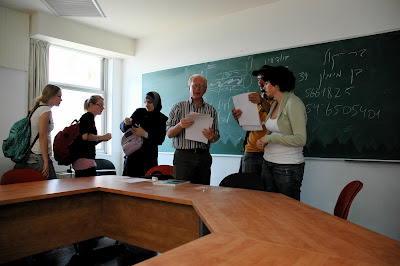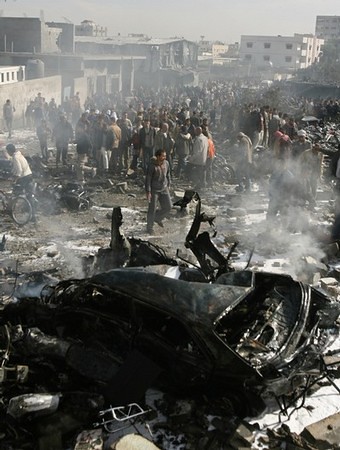For example, Hebrew has two words that fill the space of the English "independent":
- "עצמאי" is derived from the root ע.צ.מ. (which means self or essence). This is the word you'd use for "independent research" or "Independence Day." And then there's...
- "בלתי תלוי," i.e. non-dependent — which is the word you'd use for "independent variable" and the like.
Here's another one I often mess up. There are four words that do the job of the English word "class" (in the educational context):

- "כיתה" ≈ classroom ("The blackboard's at the front of the class.")
- "קורס" ≈ course ("I'm going to sign up for this class.")
- "שיעור" ≈ lesson ("I have to get to class.")
- "שכבה" ≈ level ("She's in my graduating class.")
If you know me, you can guess where I'm headed: Sometimes languages make conceptual distinctions that encourage Bad Framing. Handy example: English doesn't have a one-word label for a promiscuous person, or an unmarried person. In both of these cases, it divides the concept into a male category (pimp, bachelor) and a female category (slut, spinster). And our patriarchal notions about gender performance infect these gendered terms with contrasting connotations, clouding our moral vision, et cetera.
Moral cataracts are easier to spot when they're not on your eyes. So when Hebrew's problematic conceptual distinctions glare out at me, I try to remember that I live in a glass house. With that disclaimer out of the way, let me just throw this one stone...
Hebrew distinguishes between propaganda (תעמולה) and "explanation"/Hasbara (הסברה). Propaganda is what Arabs do when they use skewed political analysis and gruesome images to rally the world to against us. Explanation is what Israel does when it publishes sympathetic political analysis and powerful images to help the world understand what we're feeling? Deep down inside? (... What?)
I mean, how would you feel, if someone throws on you טיל [a rocket]?
Hebrish rap from Israel's fantastic sketch comedy show, Eretz Nehederet
To watch it with English subtitles: click on the triangle
icon at the bottom right corner of the viewer, and select "CC."
There's been a lot of talk about Hasbara on the news. How'd we do this time? Could we do better? How will we confront the Hasbara challenges of the coming weeks? (Hasbara challenges are soon-to-be-published facts, like death counts in Gaza. We'll address that one by painting Israel's soldiers as the true victims: "Hamas forced them to kill civilians! Our boys shed a tear as they pulled the trigger!")
I don't know if the discourse would be any different without this absurdly transparent euphemism. I like to think it would.






